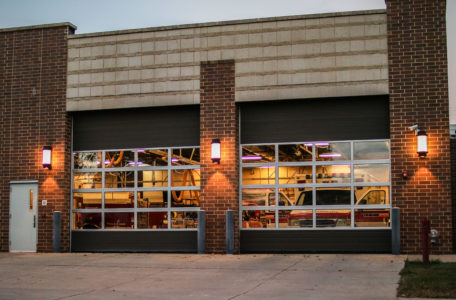The only viable option for emergency treatment in Poweshiek County is Grinnell Regional Medical Center (GRMC), the only major hospital in at least a one-hour radius. As a result, the outcome of Poweshiek County’s upcoming ambulance contract renewal has significant bearing on the safety of its residents.
Midwest Ambulance, an Iowa-based, for-profit company, serves Poweshiek County and parts of Jasper County that fall within Grinnell’s Fire Department’s district. The current contract ends in August, but Midwest Ambulance requires six months’ notice prior to the expiration date to look for additional contracts if the county decides to change providers, which makes the deadline for the current discussion March 2019.
According to Grinnell Mayor Dan Agnew, part of what drives the necessity for a professional ambulance company is the dispersed nature of the service area.
“If we only had an ambulance service that was for the city of Grinnell, … the distance and the time might not demand a paramedic be on staff,” said Agnew. The driving time from the farthest township served by Midwest Ambulance to Grinnell Regional Medical Center is around fifteen minutes — not a large amount of time, but enough that trained medical professionals with access to the necessary equipment could make a lifesaving difference.
Agnew believed that the contract negotiations are “an emotional issue. … People don’t really think about why they might need an ambulance until they need one.”
Agnew and Grinnell City Manager Russ Behrens are members of a specialized taskforce called together to research the contract renewal. Other members of the taskforce include Grinnell Fire Chief Dan Sicard, CEO of Grinnell Regional Medical Center/Unity Point Health Jennifer Havens, Trevor White, representative of the County Board of Supervisors, Grinnell City Council members Jo Wray and Jim White, and Gary Wilson and Brian Gruhn, clerks from surrounding townships served by Midwest Ambulance.
“Part of the discussion is, would they still continue to do that, or would the townships then … pay to the city, to Grinnell City, for their ambulance services?” Agnew said.
The taskforce aims to determine the best way to pay for ambulance services. Currently, townships in Poweshiek County pay their fees to the county itself, which then pays Grinnell. Certain townships in Jasper County within Grinnell’s fire protection district, who use Midwest Ambulance’s services as well, pay directly to the city.
One element that factors into determining the total per-year cost of ambulance service is the way ambulances are currently housed in Grinnell. A copy of the contract obtained by The S&B from the city shows that Midwest Ambulance pays back the city $25,000 per year for rent and utilities because the ambulances are housed on city property. The company’s annual fee for 2018-19 is $127,500, which is an increase from $105,000 in 2014-15.
To change providers, the city would have to issue a request for proposals from other companies (as well as Midwest Ambulance), which could pose a problem in itself. According to Behrens, “There might be one [company], at most two, who would even be willing to respond.”
Behrens explained that ambulance service in Iowa can vary by location, due to a lack of legislative regulation.
“No local government in Iowa has any obligation to provide emergency medical services. We have a statutory requirement to provide fire and police, but nobody’s required to provide ambulance [services]. In fact, it’s done differently in every city, county, township across the state.”
Behrens added that locations may have different levels of training for their paramedics and rescue services. Midwest Ambulance provides professionally trained emergency medical technicians (EMT) and paramedic-level responders, who work in Grinnell as part of the contract. The current contract requires the company to provide three fully equipped ambulances and “sufficiently trained” staff to the County.
Towns and townships with municipal ambulance service may have only volunteer responders, who will likely not have the same level of training as professionals. Because of this, Midwest Ambulance’s contract with Poweshiek provides a “tiering” service, where the company can provide advanced life-support aid to local areas whose emergency medical services are volunteer-only.
As of now, though, the taskforce is optimistic they will get the necessary research together in time to decide, whether that be a renegotiated contract with Midwest Ambulance or a new proposal altogether.


















































